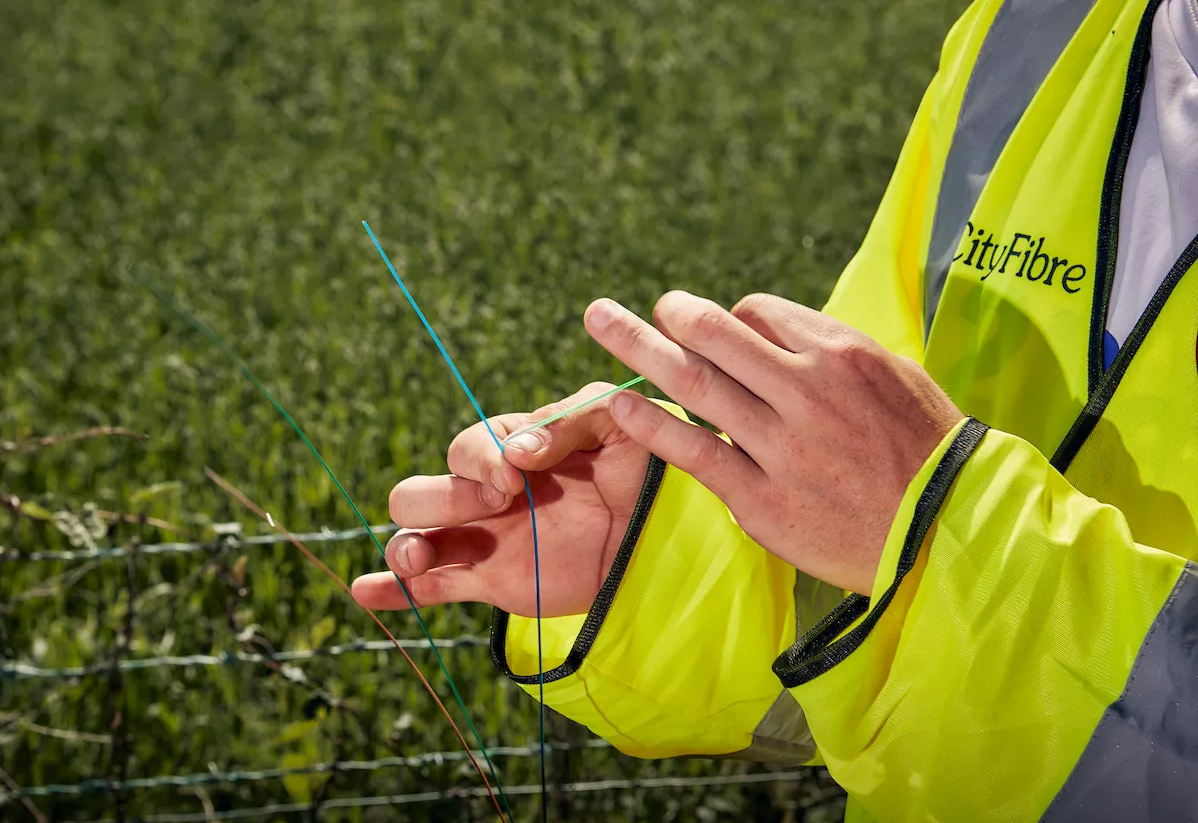Richard Thorpe advises how a partnership approach can ease the procurement process.
Government figures show that, across the UK, infrastructure construction output is almost a fifth higher than pre-pandemic levels.
This is fantastic news for both the sector and the nation as we see delivery ramp up on much of the vital infrastructure we need to future-proof the country and drive sustainable growth into the future. However, to ensure these projects are delivered on time, on budget and with maximum benefit at such an unprecedented moment, infrastructure providers, and particularly alternative providers (altnets) have clear challenges to face – mostly in relation to workforce, supply chain and cost.
At CityFibre we are currently undertaking a major infrastructure project across the UK and playing a crucial role in supporting the government’s levelling up agenda through the rapid roll-out of full-fibre digital infrastructure. We are certainly not immune to these challenges, but we have found a way forward. At the heart of this is how we work with our build partners; the construction groups we select to help us scale our build.
Here, collaboration is key, which is why we have completely changed the way we approach procurement. We believe that the traditional process and working relationship – which is often arm’s length, transactional and all-take-no-give – doesn’t work. To deliver the best for all parties, boots on the ground need to feel connected to the end goal, which, in our case, is the complete transformation of the UK’s digital landscape with symmetrical, gigabit speed connections that will benefit this generation and many more to come.
With this mindset, we are not only better equipped to solve challenges together, but we can also help build and nurture a healthier and more resilient infrastructure supply chain more widely.
Let me explain.
Providing certainty and confidence
With ongoing uncertainty in terms of human resource, materials and pricing, the best place to kick start a more collaborative relationship is by providing build partners with certainty. When we first launched our build programme, we released 26 cities all at once rather than inviting tenders for one or two cities at a time. This powerful statement of intent demonstrates that when it comes to building our infrastructure, we are in it for the long haul.
These high-volume long-term relationships, which are also exclusive and cover an entire city-wide deployment, support our partners with their growth plans and allow them to forecast and recruit the skills needed to deliver the high calibre of infrastructure required with confidence.
Focusing on skills in particular, our collaborative approach makes recruitment a shared endeavour. We have helped to host and promote local recruitment drives, for example, we have partnered on the launch of high-profile training centres, helping to generate jobs while building a new generation of skilled digital infrastructure deployment specialists.
Solving supply challenges and unlocking agility
By helping source materials and supplies when needed, we ensure any supply challenges are tackled together. The scale of our build programme, for instance, means we can often unlock alternatives that smaller regional partners cannot. Likewise, by acting as a partner, we can help to clear blockages when timelines are at stake by facilitating relationships with key partners such as planning departments at local authorities. If it means we can get our fibre networks deployed where they are needed and in a timely fashion, then we're more than happy to share the load.

CityFibre is currently undertaking a major infrastructure project across the UK (image credit: CityFibre)
We have also adopted agile working methods that enable us to be more flexible with the terms of our network contracts. For example, we have maintained the ability to tweak our payment terms so that we can help our build partners manage their resources in the short term should they ever need it. This flexibility is especially important given the economic and supply challenges we face together as an industry and a country. Everyone wins: our build partners have room to breathe, we can keep the network deployment on track, and the UK gets closer to fulfilling its ambitions.
Building a safer industry together
Sending people home safe and well every night is the most important thing we can do as an industry. This is not just an aspirational goal. As chair of the recently-established SHiFT (Safety and Health in Fibre Telecoms) Group, CityFibre – alongside 25 network builders and operators including Openreach, Virgin Media O2, and Vodafone – are leading an effort to improve health and safety standards across the entire industry. In April, we received a Gold Health and Safety Award from the Royal Society for the Prevention of Accidents (RoSPA), in recognition of our work to ensure staff and build partners operate in a safe environment.
Through our collaborative approach, we are dedicated to building a legacy that we and our build partners can be proud of – and that’s as much the case for our industry’s health, safety and wellbeing record as it is for the physical network deployment.
Striking the right balance
As you can see, when the balance is right, goals can be achieved at pace and with the right impact. Productivity is the natural consequence of an intelligent and flexible way of working that hasn’t been pursued at the expense of quality. Our deployment is on schedule because of this collaborative approach, not in spite of it. Rather than insist on productivity no matter the cost, we prefer to focus on the right way of working and let productivity flow from that.
As we continue on the path towards economic recovery and sustainable growth enabled by infrastructure investment – whether that’s digital, transport, energy or otherwise – those at the helm should include collaborative approaches to procurement and project delivery in their strategy for success.
Across industry, we need to look at how we engage with the supply chain, so that contractors work with and not for us. By adopting this principle, we can all benefit, and reach our goals faster and with greater impact and leaving a more worthwhile legacy.
Richard Thorpe is chief delivery officer at CityFibre


